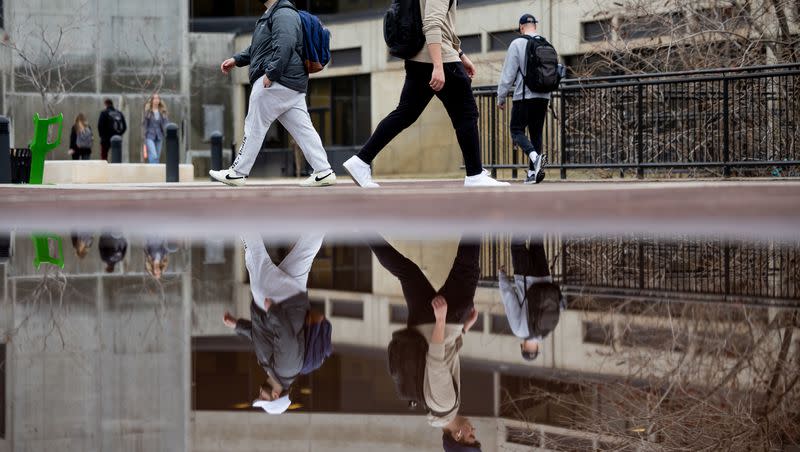Opinion: The benefits of a college education may surprise you

With the value of a college education being questioned across our country, it’s worth remembering where we started in Utah.
Some of the earliest structures Utah’s pioneer settlers built were schools. While cultivating the region’s arid valleys for survival, they also wanted their children to cultivate their minds. The University of Deseret (precursor to the University of Utah) opened in a pioneer home in 1850, just three years after they arrived.
Education was no less a part of the pioneers’ survival than engineering irrigation canals, building forts, plotting streets and planting crops. And I’m here to tell you, that much hasn’t changed; Utah’s prosperity still depends on having an educated workforce.
Now, more than ever, the economy of the future requires a broad spectrum of workers — teachers, social workers, engineers, nurses, bankers and ranchers. The education they’ll need to perform those essential jobs will vary, and the “high-value” areas of study may ebb and flow over time. But the benefits of graduating from a college or university are indisputable.
A new analysis by the economists at the Kem C. Gardner Policy Institute lays out the edge Utah’s college graduates gain: lower unemployment and lower rates of going without health insurance; less poverty and reliance on public assistance; and higher median incomes ($60,973 with a bachelor’s degree and $90,548 with a graduate or professional degree).
Higher education also supercharges income for Utahns of all races and ethnicities. Among Utahns with high income, 52% have a bachelor’s degree or higher. And 65% of Asians in Utah, 32% of Hispanics or Latinos and 29% of American Indians or Alaska Natives who qualify as high income have a bachelor’s degree or higher.
Related
It turns out, higher education also benefits the communities its graduates live in, with stronger community ties, decreased crime, reduced health care costs and greater volunteerism and voter participation. These are not nameless, faceless workers. This is you and me, the people in the office next door, our neighbors — living better lives, taking care of ourselves and our families and contributing to our communities.
I believe Utahns understand these lesser-known benefits of higher education. Bucking the national sentiment of the past few years, most Utahns still believe in the value of education, as a recent Deseret News/Hinckley Institute of Politics poll found. More than half of Utahns — 52% — either had a “great deal” or “quite a lot” of confidence in higher education institutions. Another third, 31%, had “some” confidence in the state’s colleges and universities. Just 14% had very little confidence.
Don’t get me wrong. I’m not saying every future Utah worker must have a college degree to succeed or make our state a better place. There are plenty of great jobs that don’t necessarily require a postsecondary education.
Still, I believe my own education enhances my ability to do my job well, to communicate well, to be thoughtful, to build partnerships and collaborate. Any level of postsecondary education is value added — for those working in hospitality and recreation, construction and landscaping.
Our world is only getting more complex. And Utah is changing — getting older, growing faster by in-migration than birth rate, becoming more diverse. We also have an “elite” economy, with best-in-the-nation job growth, low unemployment and a quick recovery after the COVID-19 pandemic.
We got here by supporting higher education, but the journey is not complete. We know that the economy of the future will increasingly require more advanced education. For our “best in the nation” legacy to continue, we need an educated workforce and our higher education system is the engine that makes that happen. By supporting our colleges and universities, we enhance our state’s long-term prosperity.
Derek Miller is the president and CEO of the Salt Lake Chamber, Utah’s largest and longest-serving business association.

